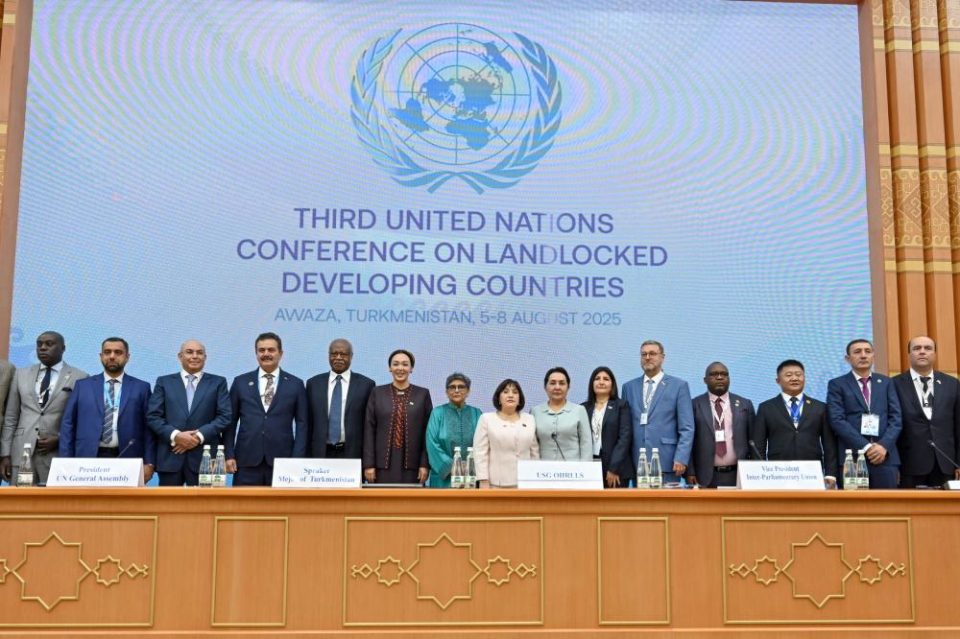The first events on the sidelines of the Third United Nations Conference on Landlocked Developing Countries (LLDCs) have commenced in the National Tourist Zone of Awaza on the Caspian Sea coast. Among them is the Parliamentary Forum, devoted to the advancing the Awaza Action Program for Landlocked Developing Countries.
The forum was attended by the Chairperson of the Mejlis of Turkmenistan, D. Gulmanova, the UN Under-Secretary-General and High Representative for the Least Developed Countries, Landlocked Developing Countries, and Small Island Developing States, Rabab Fatima, the President of the UN General Assembly, Philemon Yang, the Vice-President of the Inter-Parliamentary Union’s Executive Committee, Sevil Mikayilova, and representatives of parliaments from dozens of countries worldwide, further elevating the significance of this international event.
The Chairperson of the Mejlis of Turkmenistan, D. Gulmanova, noted that at the 63rd plenary meeting of the 79th session of the UN General Assembly, the Resolution Additional Information on the Procedure for Holding the Third United Nations Conference on Landlocked Developing Countries was unanimously adopted. She emphasized that hosting this conference in sunny Turkmenistan is a great sign of trust and respect for the country, whose permanent neutrality has been recognized by the UN three times.
At Turkmenistan’s initiative, which advocates for principles of peace and neutrality worldwide, the UN has adopted several resolutions dedicated to peace and security, the importance of dialogue, and the principles of neutrality in fostering mutual trust and creating energy and transport-transit corridors.
Strengthening international cooperation in the transport sector is one of the key directions of Turkmenistan’s peace-loving state policy. The fact that 26 November 2016—the date of the first Global Conference on Sustainable Transport held in Ashgabat—was declared by the UN General Assembly as “World Sustainable Transport Day” underscores the great importance the international community attaches to Turkmenistan’s active efforts in fostering friendly cooperation between states.
The wide representation of participants at the Awaza Conference and the significance of the issues discussed vividly demonstrate the global importance of Turkmenistan’s approaches aimed at strengthening international cooperation in sustainable transport systems for the sake of peace, progress, and prosperity.
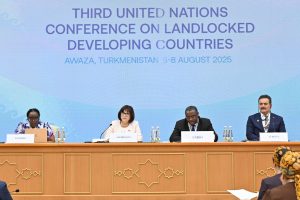
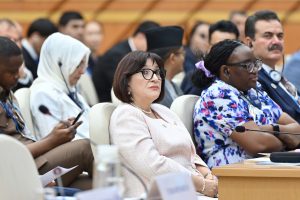
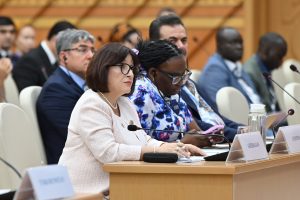
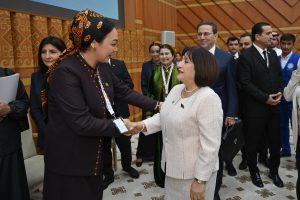
In her speech, Rabab Fatima noted that the challenges faced by LLDCs are persistent and structural, driven not only by their geographical position but also by limited connectivity with the outside world, a narrow export base, and a lack of financial resources.
These countries account for 7% of the global population but only 1% of global GDP. Their trade costs are 30% higher than those of coastal countries. Only 61% of their populations have access to electricity—compared to 92% globally—and just 39% have access to the internet, the High Representative stated. These are not just numbers. They represent real human challenges.
Fatima highlighted five areas where parliaments can contribute: aligning national strategies with the program’s priorities, ensuring adequate funding, promoting trade and regional integration, advancing principles of effective governance, and establishing parliamentary groups to implement the program.
The President of the UN General Assembly, Philemon Yang, also emphasized that parliaments play a critical role in implementing global commitments at the national level.
“Parliaments are pivotal in turning global commitments into tangible, measurable outcomes. LLDCs are no exception,” he said. “The success of the new Action Program depends on parliaments.”
He noted that parliaments shape the legal framework for developing trade, infrastructure, innovation, and regional integration. They also hold budgetary authority to allocate resources to priority sectors, including social services and climate measures.
In conclusion, he called for strengthening partnerships between national parliaments and global institutions, as this is essential to fulfilling the promise of sustainable development—a promise of peace, prosperity, and dignity for every person, wherever they are.

